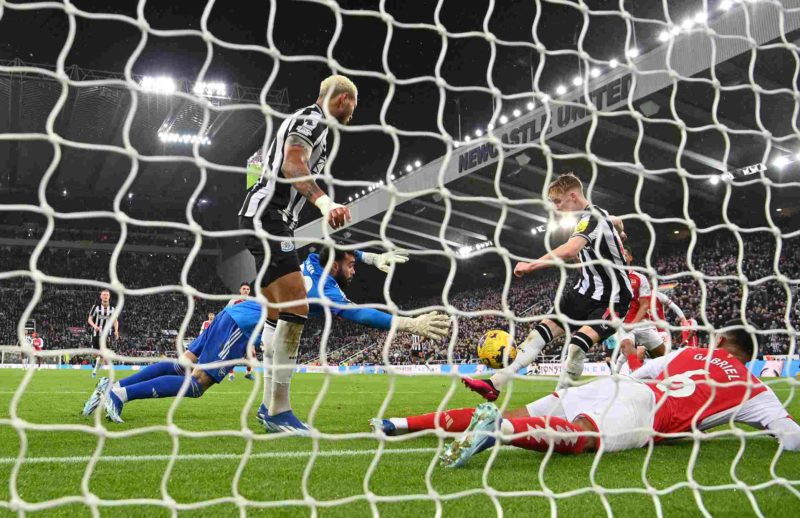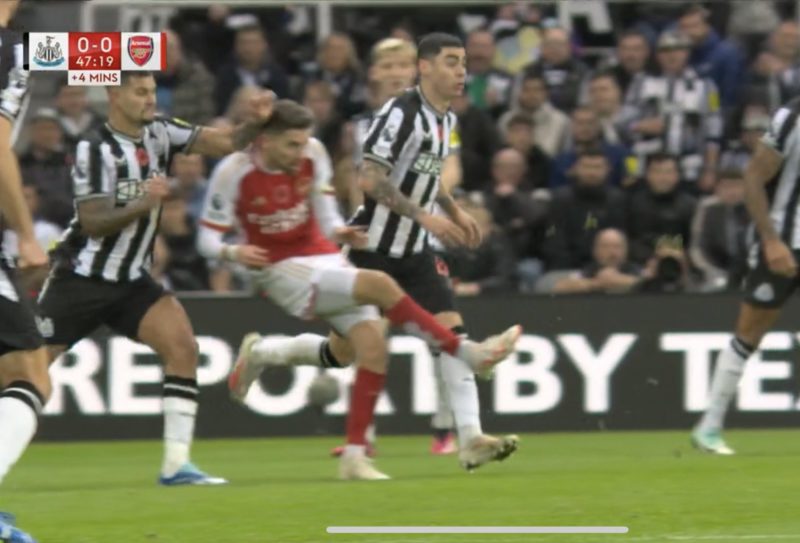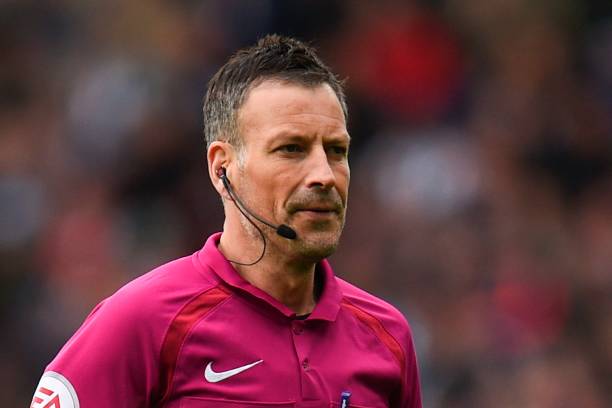Mark Clattenburg, a former top-flight referee, has weighed in on the officiating decisions that have ignited discussions among the football community, particularly those affecting Arsenal.

In a detailed analysis of the controversial decisions during Arsenal‘s match against Newcastle, former Premier League referee Mark Clattenburg provided insight that has intensified the debate around the game’s officiating.
At the heart of the controversy is the goal scored by Newcastle‘s Anthony Gordon, which many, including Arsenal manager Mikel Arteta, believe should have been disallowed.
Clattenburg agrees with this assessment, singling out an infringement that was looked at by the officials but deemed to be fair play.
“The whole goal didn’t feel right and if there was a moment to disallow it then it was this as Joelinton clearly pushed Gabriel,” stated Clattenburg.
This crucial phase of play where Joelinton’s push on Arsenal‘s Gabriel led to the subsequent goal was, according to Clattenburg, the decisive moment that should have resulted in the goal being ruled out.
Clattenburg’s commentary doesn’t stop there; he also touches on another contentious issues involving Bruno Guimaraes and Kai Havertz.
He argues that a potential red card for Guimaraes after an elbow incident was bypassed in favour of maintaining the referee’s relationship with the players.
“Had Stuart Attwell sent off Bruno Guimaraes and not Kai Havertz for his earlier tackle he’d have lost the respect of the players,” he remarked, suggesting that the referee’s decision-making may be influenced by factors other than the rulebook.
Clattenburg further explains that the contact made by Havertz did not warrant a red card, making the above point even worse.

Other decisions throughout the match have also been the subject of scrutiny.
For instance, there was ambiguity surrounding a ball potentially out of play before Joe Willock‘s cross, with Clattenburg noting the lack of conclusive evidence from VAR: “There wasn’t a camera angle available to the VAR that could have conclusively ruled that the ball was out of play, so the on-field decision has to stand.”
When addressing a possible offside situation that led to Gordon’s goal, Clattenburg pointed out that the VAR was hindered by blocked camera angles, preventing a definitive conclusion. “This happens a lot where players block the cameras, meaning the VAR couldn’t draw the lines and conclusively rule out the goal for offside,” he explained.
Sometimes they can’t draw them, sometimes they just don’t bother.
Arteta’s frustration was evident as he labelled the decision to allow the goal a ‘disgrace’, reflecting the broader sentiments of the Arsenal camp.
Arsenal later backed their manager’s statements.
The accumulation of these events — particularly the push on Gabriel which Clattenburg highlights as a clear error — has sparked discussion about the effectiveness of VAR and the consistency with which the rules of the game are enforced, especially in situations with significant implications for teams like Arsenal.

